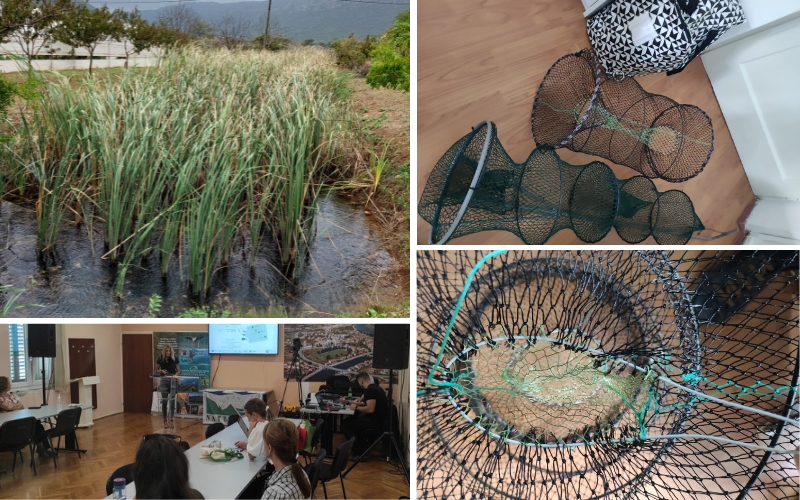Collaborative workshop on sustainable fishing practices
In November, partners held a collaborative workshop on sustainable fishing practices in the Balkan Terrapin habitats. The workshop in Opuzen was attended by representatives of the Local Action Group in Fisheries "Malo misto," local Water Management Branch of the Hrvatske vode, sector for sea and freshwater fisheries of the Directorate for Fisheries of the Ministry of Agriculture as well as representatives of the Institute for Environmental Protection and Nature and the Nature Protection Administration of the Ministry of Economy and Sustainable Development.
The Balkan Terrapin is one of the most endangered species of the Croatian herpetofauna. Since it inhabits anthropogenic ponds that humans have used and maintained for centuries, pressures on these habitats occur precisely when the ponds cease to be used and are left to vegetation overgrow and accumulation of sediment. In addition to habitat degradation and loss caused by the channelization of watercourses, ecological succession, and the presence of invasive species, the survival of Balkan Terrapin is also threatened by the illegal use of fishing gear.

Workshops had lectures by professors from the Faculty of Agriculture at the University of Zagreb on invasive species in the project area with an overview of the legal framework for freshwater and marine fishing in the Dubrovnik-Neretva County, and on the issue of illegal, unreported, and unregulated fishing in the project area. In further discussion participants were presented with preliminary results of a survey on the accidental capture of turtles with standard fishing gear.
To reduce the likelihood of accidental capture of freshwater turtles by fishing, a new prototype of 'turtle-friendly' fishing net is being tested. For this purpose, participants were presented with the design modification of the gear opening, as well as the results of preliminary testing.
Following discussion among participants from different sectors on the management issues and overlapping jurisdictions in the ecological network and protected areas, and ways to best address existing problems through the legal framework and daily practices, indicates that collaboration between different sectors makes an exceptional contribution to the protection and preservation of the natural values of the Dubrovnik-Neretva County.
